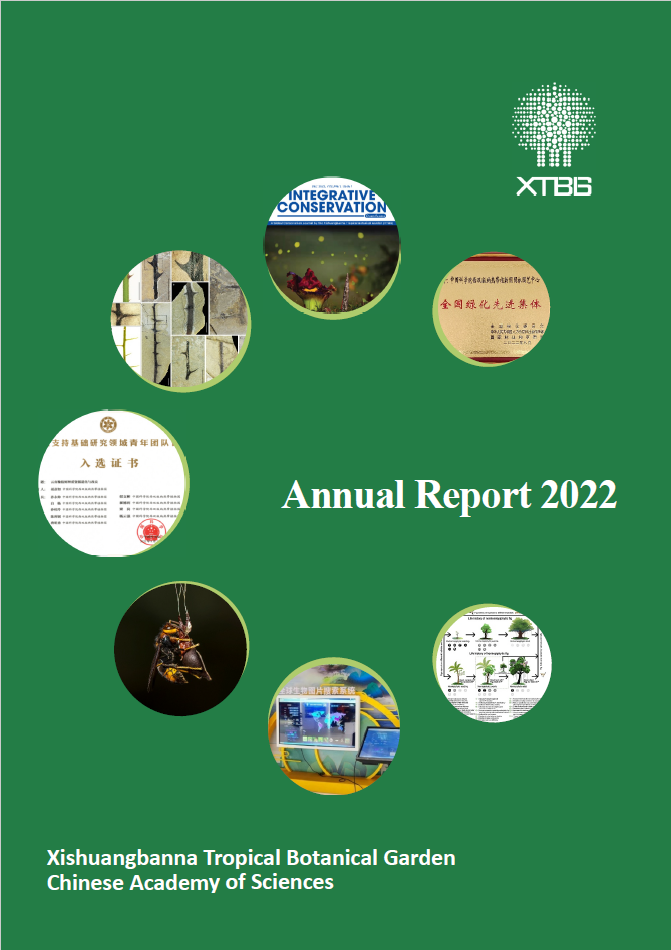The year 2022 was a generally stable year for XTBG, with occasional ups and downs.
In 2022, XTBG received 149 million Yuan in research funds for 139 new projects, got 412 research articles published in internationally peer-reviewed scientific journals, 1 monographs published, 12 patents authorized, 9 new plant varieties registered, 3 upland rice varieties approved at the provincial level, 3 research achievements transferred, etc.
XTBG earnestly promoted the reorganization of the State Key Laboratories and actively strived for major scientific and technological tasks of the state, the Chinese Academy of Sciences, and the local community. The newly formed rubber research team was supported by the Chinese Academy of Sciences' Stable Support for Basic Research Youth Team Project, and one project was funded by the National Natural Science Foundation of China's Outstanding Youth Fund.
In 2022, XTBG published their research results in such journals as Nature Communications, Plant Cell, Current Biology, New Phytologist, etc.
In a study published in Nature Communications, researchers and their collaborators reported exceptionally rich assemblages of plant spine fossils collected from late Eocene (about 39 million years ago) sediments in central Tibet. These fossils confirm an early diversification of spiny plants in the Tibetan region contemporaneous with the emergence of open, semi-wooded habitats by the late Eocene and early in the transition of central Tibet to full plateau formation.
In a study published in Current Biology, researchers have identified three species of Vespa hornets that help move most Aquilaria sinensis seeds to more suitable places before they lose viability by eating the plant’s fruit.
XTBG achieved new results in species conservation, science education and scenic opening, and new highlights in the construction of talent teams and postgraduate education.
Prof. Chen Jin, former director of XTBG, was awarded the prestigious Royal Botanic Garden Edinburgh (RBGE) Medal. This is the first time this Medal was ever conferred to a Chinese researcher.
In 2022, a new global journal for biodiversity conservation, Integrative Conservation, has been officially launched. “Integrative Conservation is the result of years of planning. It has been conceived as a generalist and interdisciplinary journal, encompassing a wide range of perspectives and scholarly disciplines relevant for our understanding and conservation of biodiversity,” said Prof. YANG Yongping, director of XTBG and an editor-in-chief of the journal.
XTBG has also made progress in many other aspects. Please refer to our Annual Report 2022 for a detailed understanding.

Annual Report 2022

